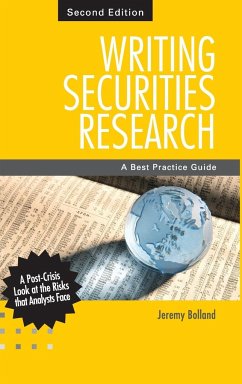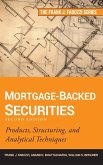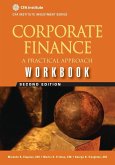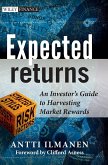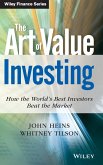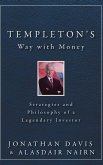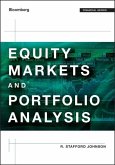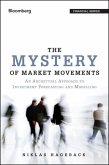Jeremy Bolland
Writing Securities Research 2E
Jeremy Bolland
Writing Securities Research 2E
- Gebundenes Buch
- Merkliste
- Auf die Merkliste
- Bewerten Bewerten
- Teilen
- Produkt teilen
- Produkterinnerung
- Produkterinnerung
The book highlights the major risks that securities analysts (and other securities professionals) face. The various laws, rules and regulations that securities analysts are subject to are broadly split into three categories: research-specific rules and regulations; market-wide laws; and society-wide laws and customs. The risks that arise out of these various levels of rules and regulations, insofar as research analysts and other securities professionals are concerned, include conflicts of interest, fair distribution/front-running of research, insider trading, spreading of rumours, not…mehr
Andere Kunden interessierten sich auch für
![Mortgage-Backed Securities 2e Mortgage-Backed Securities 2e]() Frank J. FabozziMortgage-Backed Securities 2e76,99 €
Frank J. FabozziMortgage-Backed Securities 2e76,99 €![Corporate Finance Workbook 2E Corporate Finance Workbook 2E]() Michelle R. ClaymanCorporate Finance Workbook 2E48,99 €
Michelle R. ClaymanCorporate Finance Workbook 2E48,99 €![Expected Returns Expected Returns]() Antti IlmanenExpected Returns91,99 €
Antti IlmanenExpected Returns91,99 €![The Art of Value Investing The Art of Value Investing]() John HeinsThe Art of Value Investing39,99 €
John HeinsThe Art of Value Investing39,99 €![Templeton's Way with Money Templeton's Way with Money]() Alasdair NairnTempleton's Way with Money33,99 €
Alasdair NairnTempleton's Way with Money33,99 €![Equity Markets and Portfolio Analysis Equity Markets and Portfolio Analysis]() R. Stafford JohnsonEquity Markets and Portfolio Analysis80,99 €
R. Stafford JohnsonEquity Markets and Portfolio Analysis80,99 €![The Mystery of Market Movements The Mystery of Market Movements]() Niklas HagebackThe Mystery of Market Movements72,99 €
Niklas HagebackThe Mystery of Market Movements72,99 €-
-
-
The book highlights the major risks that securities analysts (and other securities professionals) face. The various laws, rules and regulations that securities analysts are subject to are broadly split into three categories: research-specific rules and regulations; market-wide laws; and society-wide laws and customs. The risks that arise out of these various levels of rules and regulations, insofar as research analysts and other securities professionals are concerned, include conflicts of interest, fair distribution/front-running of research, insider trading, spreading of rumours, not highlighting investment risks (including corporate governance issues), as well as defamation and copyright issues.
We see that if an analyst puts a company in play, a regulator would instantly assume that the analyst is trading on inside information (especially if the information turns out to be true) or is spreading a rumour (especially if it turns out to be false). However, we also see that there is a third option - that the analyst might just have come to his or her conclusion through some good research based on verifiable facts and reasonable assumptions.
Definitions of research from around the world are examined. After all, research is generally defined by its content, not by the author's job description. As such, non-Research securities professionals such as brokers and marketers of research as well as investors, journalists and even bloggers and twitterers need to understand what constitutes "research" so that they don't fall into the regulators' purview.
As regards the risks to investment views that analysts need to highlight to their investors, the book not only examines economic and financial risks but also examines corporate governance issues such as executive compensation, equal treatment of shareholders, related-party transactions and risk management.
To demonstrate the risks that analysts, securities professionals and investors face, the book draws on many cases and examples from around the world, including many from the global financial crisis of 2007-2009. From these cases we see how penalties for those involved in the securities markets have become more serious over the years. They range from fines to imprisonment, and even to execution in some markets. To give a light-hearted angle, many of these cases are accompanied by "Alex" cartoons.
We see that if an analyst puts a company in play, a regulator would instantly assume that the analyst is trading on inside information (especially if the information turns out to be true) or is spreading a rumour (especially if it turns out to be false). However, we also see that there is a third option - that the analyst might just have come to his or her conclusion through some good research based on verifiable facts and reasonable assumptions.
Definitions of research from around the world are examined. After all, research is generally defined by its content, not by the author's job description. As such, non-Research securities professionals such as brokers and marketers of research as well as investors, journalists and even bloggers and twitterers need to understand what constitutes "research" so that they don't fall into the regulators' purview.
As regards the risks to investment views that analysts need to highlight to their investors, the book not only examines economic and financial risks but also examines corporate governance issues such as executive compensation, equal treatment of shareholders, related-party transactions and risk management.
To demonstrate the risks that analysts, securities professionals and investors face, the book draws on many cases and examples from around the world, including many from the global financial crisis of 2007-2009. From these cases we see how penalties for those involved in the securities markets have become more serious over the years. They range from fines to imprisonment, and even to execution in some markets. To give a light-hearted angle, many of these cases are accompanied by "Alex" cartoons.
Produktdetails
- Produktdetails
- Verlag: Wiley & Sons
- 2. Aufl.
- Seitenzahl: 192
- Erscheinungstermin: 21. September 2010
- Englisch
- Abmessung: 235mm x 157mm x 23mm
- Gewicht: 657g
- ISBN-13: 9780470826027
- ISBN-10: 0470826029
- Artikelnr.: 29741784
- Verlag: Wiley & Sons
- 2. Aufl.
- Seitenzahl: 192
- Erscheinungstermin: 21. September 2010
- Englisch
- Abmessung: 235mm x 157mm x 23mm
- Gewicht: 657g
- ISBN-13: 9780470826027
- ISBN-10: 0470826029
- Artikelnr.: 29741784
Since writing the first edition of Writing Securities Research: A Best Practice Guide, Jeremy Bolland has been invited regularly to address CFA societies on the risks that their members face as chartered financial analysts. He has also addressed audiences of regulators, lawyers, and law students on the subject. Jeremy has over 25 years of experience in the world of investments, and has worked in London, Tokyo, and Hong Kong. For the past 16 years he has worked in securities research at global investment banks, including a five-year stint at Morgan Stanley, five years as a director at ING/ING Barings, and most recently five years at HSBC where his final role was Head of Training for Global Research. Jeremy has been a qualified supervisory analyst (SA) since 1997, and as such is authorized to approve securities research for U.S. distribution. Before entering the securities industry, Jeremy was marketing director and company secretary for a property development company that undertook industrial and commercial projects throughout the U.K. as tax-shelter investments for corporates and high net worth individuals. Jeremy is also the author of A Guide to Investment in Enterprise Zones (Longman, 1988, 2nd ed. 1990). Jeremy Bolland grew up in Malaysia, holds an honors degree in Classics from King's College, London University, and studied Chinese at SOAS and Beijing Normal University.
Foreword. Preface. Summary points and recommendations. Background.
Background to the second edition. Background to the first edition. The
changing regulatory environment. Introduction. More education rather than
more regulation. The need to identify investment risk. Target readership.
Commercial benefits to compliance. Local differences and specific
circumstances. Summary. Case studies and examples. Themes. Research
coverage. Sourcing information. Reasonable basis for recommendations and
risk assessment. Conflicts of interest. Writing in general.
Acknowledgments. Abbreviations Used in This Book. Chapter 1: Principles of
Research. Key points. Definition and supervision of research. Supervision
and control of research. Marketing research to the U.S. by foreign
broker-dealers. Stock-picking tips. Continuing education. Cheating in
tests. The realm of research. Ambit of securities regulations (bonds).
Ambit of securities research regulations (equity and credit research
analysts). Ambit of securities regulations (swaps and other derivatives).
Ambit of securities research regulations (marketers of research, including
hedge fund research). Ambit of securities research regulations (analysts as
experts on sales desks). Ambit of securities research regulations
(stock-tipping bloggers). Ambit of securities research regulations (media
commentators). Minimizing approval and publishing risks. Honesty and fair
treatment of clients. Common securities-related violations cited by the SEC
and FINRA of the U.S. Regulations tightening up around the world (Hong
Kong). Regulations tightening up around the world (China). Regulations
tightening up around the world (Japan). Front-running and selective
distribution of research. Front-running and selective distribution of
research (huddles). Front-running of research. Selective distribution of
research. Selective distribution of research (fact-checking). Selective
distribution of research (greater conviction of view). Insider dealing and
selective disclosure. Use/dissemination of price-sensitive information
(general). Use/dissemination of price-sensitive information (U.S.)
Use/dissemination of price-sensitive information (U.K.) Use/dissemination
of price-sensitive information (Hong Kong). Use/dissemination of
price-sensitive information (serial insider trading). Use/dissemination of
price-sensitive information (pillow talk). Use/dissemination of
price-sensitive information (economists). Specific requests and proprietary
information. Definition of publishing. Unfair portrayal of past
recommendations. Performance of past recommendations. Conflicts of interest
and disclosure of interests. Catering to investors with specific investment
criteria. Shari'ah law implications for securities research analysts
(stocks). Shari'ah law implications for securities research analysts
(bonds). The virtues of a vice portfolio. Analyst surveys. Playing the
voting "game". Sourcing information. Acknowledging the source. Gathering
confidential information. Receiving confidential information. Rumors,
speculation and M&A. Identifying M&A candidates (putting companies into
play). Short selling by hedge funds (abusive rumor-mongering).
Defamation--libel and slander. Defamation. Intellectual property--copyright
and plagiarism. Intellectual property. Research integrity and consistency.
The problem. Disgruntled clients. The principles. ...be consistent or
explain apparent inconsistencies. Sector/country weightings and universes.
Consistency of views. Top picks (research requirements). Consistency of
views. Technical analysis. Useful qualifications (technical analysis).
Coverage universe--initiations, terminations and transfers. Accountability
principles. Initiation of coverage. Transfer or re-initiation of coverage.
Co-authorship liability. Termination of coverage. "Under review".
Publishing new research. No recommendation? No recommendations. Chapter 2:
Reasonable Basis, Valuations and Risk. Key points. Consistency of
recommendations. Explanation for inconsistencies. Following the market.
Valuation support. Forensic analysis of accounts. Channel-stuffing and
other activities. Cross-industry antitrust issues. Disclosures and notes.
Pro-forma accounting and use of selective data. Reasonableness of
valuations. Highlight valuation changes. The appropriate valuation
methodology. Unrealistic expectations or questionable bases for valuation.
Excessive valuations. Highlighting risks and volatility. Appropriateness of
sell ratings. Short-selling by hedge funds (pushing the envelope?)
Management's reaction to negative research (legal action). Management's
reaction to negative research (restricting information). Mis-selling and
not highlighting risks. Highlighting investment risks (credit crisis of
2007/08, U.S.) Highlighting investment risks (credit crisis of 2007/08,
global). Highlighting investment risks (general). Evaluating risks and
catalysts. Catalysts and consensus. Market liquidity and contagion risks.
Foreign exchange and interest rate risks. Currency risks. Earnings risks.
Brand theft risk. Brand theft. Brand usurping. Cashflow and liquidity
risks. Valuation risks. Modeling and miscalculation risks. Modeling risks.
Mispricing risks. Information risk. M&A risks. Corporate governance risks.
Gauging corporate governance risks. Social responsibility. Corporate
governance (social responsibility--rankings). Durability of brand names.
Corporate governance (social responsibility--the mass-consumer market).
Corporate governance (social responsibility--corporate governance
excellence). Executive remuneration. Corporate governance (executive
remuneration). Corporate governance (executive remuneration--disclosures).
Executive insider trading. Corporate governance (executive insider
trading). Equal treatment of shareholders. Corporate governance (equal
treatment of shareholders). Corporate governance (related-party
transactions). Corporate governance (equal treatment of
shareholders--related-party transactions). Corporate governance (vote
manipulation). Corporate governance (independent non-executive directors).
National interest. Corporate governance (national interest). Corporate
governance (national interest--strategic industries). Corporate governance
(national interest--sovereign wealth funds). Risk management. Corporate
governance (false statements by issuers). Corporate governance (risk
management and rogue traders). Corporate governance (transparency of
operations). Ponzi schemes. Corporate governance (risk management and
money-laundering, bribery and corruption). Credit rating risks. Analyzing
risk (credit rating agencies). Due diligence by investment bankers. Due
diligence (failures). Chapter 3: Independence of Research and Conflicts of
Interest. Key points. Summary. Separating research and banking. Conflicts
of interest (global settlements). Conflicts of interest (collateralized
debt obligations). Conflicts of interest (auction-rate securities).
Managing contacts between analysts and bankers. Disclosures of interests
and relationships. Conflicts of interest (private trading contrary to
recommendations). Analyst certification. Conflicts of interest
(disclosures). Writing research on banking clients. Conflicts of interest
(watch lists). Conflicts of interest (managing apparent conflicts).
"Pre-deal" research. Conflicts of interest (pre-deal research). Influencing
of analysts by issuers. Conflicts of interest (bribes). Conflicts of
interest (favors). Conflicts of interest (issuers guiding analysts).
Conflicts of interest (employment). Independent research firms. Alleged
conflicts of interest (independent research firms). Paying for sell-side
research. Transparency in paying for research (inappropriate payments).
Paying for credit ratings. Chapter 4: Non-research: E-mails, Blogs and
Internal Communications. Key points. Approval of e-mail and media
appearances. Objective commentary on non-rated companies. E-mails. E-mails
as research. Retention of e-mails. "Internal Use Only". Chapter 5: General
Writing, Editing and Publishing Considerations. Key points. Introduction.
Getting the message across. Headlines and covers. Standards of taste.
Bullets, key points and executive summaries. Publishing and distribution.
Writing the text. Writing rules. Use the right word. Vocabulary for
attributing forward-looking comments (using "will"). Measurements and
direction/degree of movement. Vocabulary for describing movement and
performance. Words to avoid or use carefully. Bullshit Bingo (vocabulary
and phrases). Clarity of communication. Clarity, consistency, conformity
and continuity. Be consistent or explain inconsistencies. Editorial
departments and style guides. Translations into different languages.
Mistranslations. Publishing independent yet integrated reports. Sensitivity
to politics and religion. Sensitivity to politics and religion. Correcting
errors. Courses of corrective action. Materiality of the error. Publishing
of out-of-date story. Retractions. Helping the reader. Index.
Background to the second edition. Background to the first edition. The
changing regulatory environment. Introduction. More education rather than
more regulation. The need to identify investment risk. Target readership.
Commercial benefits to compliance. Local differences and specific
circumstances. Summary. Case studies and examples. Themes. Research
coverage. Sourcing information. Reasonable basis for recommendations and
risk assessment. Conflicts of interest. Writing in general.
Acknowledgments. Abbreviations Used in This Book. Chapter 1: Principles of
Research. Key points. Definition and supervision of research. Supervision
and control of research. Marketing research to the U.S. by foreign
broker-dealers. Stock-picking tips. Continuing education. Cheating in
tests. The realm of research. Ambit of securities regulations (bonds).
Ambit of securities research regulations (equity and credit research
analysts). Ambit of securities regulations (swaps and other derivatives).
Ambit of securities research regulations (marketers of research, including
hedge fund research). Ambit of securities research regulations (analysts as
experts on sales desks). Ambit of securities research regulations
(stock-tipping bloggers). Ambit of securities research regulations (media
commentators). Minimizing approval and publishing risks. Honesty and fair
treatment of clients. Common securities-related violations cited by the SEC
and FINRA of the U.S. Regulations tightening up around the world (Hong
Kong). Regulations tightening up around the world (China). Regulations
tightening up around the world (Japan). Front-running and selective
distribution of research. Front-running and selective distribution of
research (huddles). Front-running of research. Selective distribution of
research. Selective distribution of research (fact-checking). Selective
distribution of research (greater conviction of view). Insider dealing and
selective disclosure. Use/dissemination of price-sensitive information
(general). Use/dissemination of price-sensitive information (U.S.)
Use/dissemination of price-sensitive information (U.K.) Use/dissemination
of price-sensitive information (Hong Kong). Use/dissemination of
price-sensitive information (serial insider trading). Use/dissemination of
price-sensitive information (pillow talk). Use/dissemination of
price-sensitive information (economists). Specific requests and proprietary
information. Definition of publishing. Unfair portrayal of past
recommendations. Performance of past recommendations. Conflicts of interest
and disclosure of interests. Catering to investors with specific investment
criteria. Shari'ah law implications for securities research analysts
(stocks). Shari'ah law implications for securities research analysts
(bonds). The virtues of a vice portfolio. Analyst surveys. Playing the
voting "game". Sourcing information. Acknowledging the source. Gathering
confidential information. Receiving confidential information. Rumors,
speculation and M&A. Identifying M&A candidates (putting companies into
play). Short selling by hedge funds (abusive rumor-mongering).
Defamation--libel and slander. Defamation. Intellectual property--copyright
and plagiarism. Intellectual property. Research integrity and consistency.
The problem. Disgruntled clients. The principles. ...be consistent or
explain apparent inconsistencies. Sector/country weightings and universes.
Consistency of views. Top picks (research requirements). Consistency of
views. Technical analysis. Useful qualifications (technical analysis).
Coverage universe--initiations, terminations and transfers. Accountability
principles. Initiation of coverage. Transfer or re-initiation of coverage.
Co-authorship liability. Termination of coverage. "Under review".
Publishing new research. No recommendation? No recommendations. Chapter 2:
Reasonable Basis, Valuations and Risk. Key points. Consistency of
recommendations. Explanation for inconsistencies. Following the market.
Valuation support. Forensic analysis of accounts. Channel-stuffing and
other activities. Cross-industry antitrust issues. Disclosures and notes.
Pro-forma accounting and use of selective data. Reasonableness of
valuations. Highlight valuation changes. The appropriate valuation
methodology. Unrealistic expectations or questionable bases for valuation.
Excessive valuations. Highlighting risks and volatility. Appropriateness of
sell ratings. Short-selling by hedge funds (pushing the envelope?)
Management's reaction to negative research (legal action). Management's
reaction to negative research (restricting information). Mis-selling and
not highlighting risks. Highlighting investment risks (credit crisis of
2007/08, U.S.) Highlighting investment risks (credit crisis of 2007/08,
global). Highlighting investment risks (general). Evaluating risks and
catalysts. Catalysts and consensus. Market liquidity and contagion risks.
Foreign exchange and interest rate risks. Currency risks. Earnings risks.
Brand theft risk. Brand theft. Brand usurping. Cashflow and liquidity
risks. Valuation risks. Modeling and miscalculation risks. Modeling risks.
Mispricing risks. Information risk. M&A risks. Corporate governance risks.
Gauging corporate governance risks. Social responsibility. Corporate
governance (social responsibility--rankings). Durability of brand names.
Corporate governance (social responsibility--the mass-consumer market).
Corporate governance (social responsibility--corporate governance
excellence). Executive remuneration. Corporate governance (executive
remuneration). Corporate governance (executive remuneration--disclosures).
Executive insider trading. Corporate governance (executive insider
trading). Equal treatment of shareholders. Corporate governance (equal
treatment of shareholders). Corporate governance (related-party
transactions). Corporate governance (equal treatment of
shareholders--related-party transactions). Corporate governance (vote
manipulation). Corporate governance (independent non-executive directors).
National interest. Corporate governance (national interest). Corporate
governance (national interest--strategic industries). Corporate governance
(national interest--sovereign wealth funds). Risk management. Corporate
governance (false statements by issuers). Corporate governance (risk
management and rogue traders). Corporate governance (transparency of
operations). Ponzi schemes. Corporate governance (risk management and
money-laundering, bribery and corruption). Credit rating risks. Analyzing
risk (credit rating agencies). Due diligence by investment bankers. Due
diligence (failures). Chapter 3: Independence of Research and Conflicts of
Interest. Key points. Summary. Separating research and banking. Conflicts
of interest (global settlements). Conflicts of interest (collateralized
debt obligations). Conflicts of interest (auction-rate securities).
Managing contacts between analysts and bankers. Disclosures of interests
and relationships. Conflicts of interest (private trading contrary to
recommendations). Analyst certification. Conflicts of interest
(disclosures). Writing research on banking clients. Conflicts of interest
(watch lists). Conflicts of interest (managing apparent conflicts).
"Pre-deal" research. Conflicts of interest (pre-deal research). Influencing
of analysts by issuers. Conflicts of interest (bribes). Conflicts of
interest (favors). Conflicts of interest (issuers guiding analysts).
Conflicts of interest (employment). Independent research firms. Alleged
conflicts of interest (independent research firms). Paying for sell-side
research. Transparency in paying for research (inappropriate payments).
Paying for credit ratings. Chapter 4: Non-research: E-mails, Blogs and
Internal Communications. Key points. Approval of e-mail and media
appearances. Objective commentary on non-rated companies. E-mails. E-mails
as research. Retention of e-mails. "Internal Use Only". Chapter 5: General
Writing, Editing and Publishing Considerations. Key points. Introduction.
Getting the message across. Headlines and covers. Standards of taste.
Bullets, key points and executive summaries. Publishing and distribution.
Writing the text. Writing rules. Use the right word. Vocabulary for
attributing forward-looking comments (using "will"). Measurements and
direction/degree of movement. Vocabulary for describing movement and
performance. Words to avoid or use carefully. Bullshit Bingo (vocabulary
and phrases). Clarity of communication. Clarity, consistency, conformity
and continuity. Be consistent or explain inconsistencies. Editorial
departments and style guides. Translations into different languages.
Mistranslations. Publishing independent yet integrated reports. Sensitivity
to politics and religion. Sensitivity to politics and religion. Correcting
errors. Courses of corrective action. Materiality of the error. Publishing
of out-of-date story. Retractions. Helping the reader. Index.
Foreword. Preface. Summary points and recommendations. Background.
Background to the second edition. Background to the first edition. The
changing regulatory environment. Introduction. More education rather than
more regulation. The need to identify investment risk. Target readership.
Commercial benefits to compliance. Local differences and specific
circumstances. Summary. Case studies and examples. Themes. Research
coverage. Sourcing information. Reasonable basis for recommendations and
risk assessment. Conflicts of interest. Writing in general.
Acknowledgments. Abbreviations Used in This Book. Chapter 1: Principles of
Research. Key points. Definition and supervision of research. Supervision
and control of research. Marketing research to the U.S. by foreign
broker-dealers. Stock-picking tips. Continuing education. Cheating in
tests. The realm of research. Ambit of securities regulations (bonds).
Ambit of securities research regulations (equity and credit research
analysts). Ambit of securities regulations (swaps and other derivatives).
Ambit of securities research regulations (marketers of research, including
hedge fund research). Ambit of securities research regulations (analysts as
experts on sales desks). Ambit of securities research regulations
(stock-tipping bloggers). Ambit of securities research regulations (media
commentators). Minimizing approval and publishing risks. Honesty and fair
treatment of clients. Common securities-related violations cited by the SEC
and FINRA of the U.S. Regulations tightening up around the world (Hong
Kong). Regulations tightening up around the world (China). Regulations
tightening up around the world (Japan). Front-running and selective
distribution of research. Front-running and selective distribution of
research (huddles). Front-running of research. Selective distribution of
research. Selective distribution of research (fact-checking). Selective
distribution of research (greater conviction of view). Insider dealing and
selective disclosure. Use/dissemination of price-sensitive information
(general). Use/dissemination of price-sensitive information (U.S.)
Use/dissemination of price-sensitive information (U.K.) Use/dissemination
of price-sensitive information (Hong Kong). Use/dissemination of
price-sensitive information (serial insider trading). Use/dissemination of
price-sensitive information (pillow talk). Use/dissemination of
price-sensitive information (economists). Specific requests and proprietary
information. Definition of publishing. Unfair portrayal of past
recommendations. Performance of past recommendations. Conflicts of interest
and disclosure of interests. Catering to investors with specific investment
criteria. Shari'ah law implications for securities research analysts
(stocks). Shari'ah law implications for securities research analysts
(bonds). The virtues of a vice portfolio. Analyst surveys. Playing the
voting "game". Sourcing information. Acknowledging the source. Gathering
confidential information. Receiving confidential information. Rumors,
speculation and M&A. Identifying M&A candidates (putting companies into
play). Short selling by hedge funds (abusive rumor-mongering).
Defamation--libel and slander. Defamation. Intellectual property--copyright
and plagiarism. Intellectual property. Research integrity and consistency.
The problem. Disgruntled clients. The principles. ...be consistent or
explain apparent inconsistencies. Sector/country weightings and universes.
Consistency of views. Top picks (research requirements). Consistency of
views. Technical analysis. Useful qualifications (technical analysis).
Coverage universe--initiations, terminations and transfers. Accountability
principles. Initiation of coverage. Transfer or re-initiation of coverage.
Co-authorship liability. Termination of coverage. "Under review".
Publishing new research. No recommendation? No recommendations. Chapter 2:
Reasonable Basis, Valuations and Risk. Key points. Consistency of
recommendations. Explanation for inconsistencies. Following the market.
Valuation support. Forensic analysis of accounts. Channel-stuffing and
other activities. Cross-industry antitrust issues. Disclosures and notes.
Pro-forma accounting and use of selective data. Reasonableness of
valuations. Highlight valuation changes. The appropriate valuation
methodology. Unrealistic expectations or questionable bases for valuation.
Excessive valuations. Highlighting risks and volatility. Appropriateness of
sell ratings. Short-selling by hedge funds (pushing the envelope?)
Management's reaction to negative research (legal action). Management's
reaction to negative research (restricting information). Mis-selling and
not highlighting risks. Highlighting investment risks (credit crisis of
2007/08, U.S.) Highlighting investment risks (credit crisis of 2007/08,
global). Highlighting investment risks (general). Evaluating risks and
catalysts. Catalysts and consensus. Market liquidity and contagion risks.
Foreign exchange and interest rate risks. Currency risks. Earnings risks.
Brand theft risk. Brand theft. Brand usurping. Cashflow and liquidity
risks. Valuation risks. Modeling and miscalculation risks. Modeling risks.
Mispricing risks. Information risk. M&A risks. Corporate governance risks.
Gauging corporate governance risks. Social responsibility. Corporate
governance (social responsibility--rankings). Durability of brand names.
Corporate governance (social responsibility--the mass-consumer market).
Corporate governance (social responsibility--corporate governance
excellence). Executive remuneration. Corporate governance (executive
remuneration). Corporate governance (executive remuneration--disclosures).
Executive insider trading. Corporate governance (executive insider
trading). Equal treatment of shareholders. Corporate governance (equal
treatment of shareholders). Corporate governance (related-party
transactions). Corporate governance (equal treatment of
shareholders--related-party transactions). Corporate governance (vote
manipulation). Corporate governance (independent non-executive directors).
National interest. Corporate governance (national interest). Corporate
governance (national interest--strategic industries). Corporate governance
(national interest--sovereign wealth funds). Risk management. Corporate
governance (false statements by issuers). Corporate governance (risk
management and rogue traders). Corporate governance (transparency of
operations). Ponzi schemes. Corporate governance (risk management and
money-laundering, bribery and corruption). Credit rating risks. Analyzing
risk (credit rating agencies). Due diligence by investment bankers. Due
diligence (failures). Chapter 3: Independence of Research and Conflicts of
Interest. Key points. Summary. Separating research and banking. Conflicts
of interest (global settlements). Conflicts of interest (collateralized
debt obligations). Conflicts of interest (auction-rate securities).
Managing contacts between analysts and bankers. Disclosures of interests
and relationships. Conflicts of interest (private trading contrary to
recommendations). Analyst certification. Conflicts of interest
(disclosures). Writing research on banking clients. Conflicts of interest
(watch lists). Conflicts of interest (managing apparent conflicts).
"Pre-deal" research. Conflicts of interest (pre-deal research). Influencing
of analysts by issuers. Conflicts of interest (bribes). Conflicts of
interest (favors). Conflicts of interest (issuers guiding analysts).
Conflicts of interest (employment). Independent research firms. Alleged
conflicts of interest (independent research firms). Paying for sell-side
research. Transparency in paying for research (inappropriate payments).
Paying for credit ratings. Chapter 4: Non-research: E-mails, Blogs and
Internal Communications. Key points. Approval of e-mail and media
appearances. Objective commentary on non-rated companies. E-mails. E-mails
as research. Retention of e-mails. "Internal Use Only". Chapter 5: General
Writing, Editing and Publishing Considerations. Key points. Introduction.
Getting the message across. Headlines and covers. Standards of taste.
Bullets, key points and executive summaries. Publishing and distribution.
Writing the text. Writing rules. Use the right word. Vocabulary for
attributing forward-looking comments (using "will"). Measurements and
direction/degree of movement. Vocabulary for describing movement and
performance. Words to avoid or use carefully. Bullshit Bingo (vocabulary
and phrases). Clarity of communication. Clarity, consistency, conformity
and continuity. Be consistent or explain inconsistencies. Editorial
departments and style guides. Translations into different languages.
Mistranslations. Publishing independent yet integrated reports. Sensitivity
to politics and religion. Sensitivity to politics and religion. Correcting
errors. Courses of corrective action. Materiality of the error. Publishing
of out-of-date story. Retractions. Helping the reader. Index.
Background to the second edition. Background to the first edition. The
changing regulatory environment. Introduction. More education rather than
more regulation. The need to identify investment risk. Target readership.
Commercial benefits to compliance. Local differences and specific
circumstances. Summary. Case studies and examples. Themes. Research
coverage. Sourcing information. Reasonable basis for recommendations and
risk assessment. Conflicts of interest. Writing in general.
Acknowledgments. Abbreviations Used in This Book. Chapter 1: Principles of
Research. Key points. Definition and supervision of research. Supervision
and control of research. Marketing research to the U.S. by foreign
broker-dealers. Stock-picking tips. Continuing education. Cheating in
tests. The realm of research. Ambit of securities regulations (bonds).
Ambit of securities research regulations (equity and credit research
analysts). Ambit of securities regulations (swaps and other derivatives).
Ambit of securities research regulations (marketers of research, including
hedge fund research). Ambit of securities research regulations (analysts as
experts on sales desks). Ambit of securities research regulations
(stock-tipping bloggers). Ambit of securities research regulations (media
commentators). Minimizing approval and publishing risks. Honesty and fair
treatment of clients. Common securities-related violations cited by the SEC
and FINRA of the U.S. Regulations tightening up around the world (Hong
Kong). Regulations tightening up around the world (China). Regulations
tightening up around the world (Japan). Front-running and selective
distribution of research. Front-running and selective distribution of
research (huddles). Front-running of research. Selective distribution of
research. Selective distribution of research (fact-checking). Selective
distribution of research (greater conviction of view). Insider dealing and
selective disclosure. Use/dissemination of price-sensitive information
(general). Use/dissemination of price-sensitive information (U.S.)
Use/dissemination of price-sensitive information (U.K.) Use/dissemination
of price-sensitive information (Hong Kong). Use/dissemination of
price-sensitive information (serial insider trading). Use/dissemination of
price-sensitive information (pillow talk). Use/dissemination of
price-sensitive information (economists). Specific requests and proprietary
information. Definition of publishing. Unfair portrayal of past
recommendations. Performance of past recommendations. Conflicts of interest
and disclosure of interests. Catering to investors with specific investment
criteria. Shari'ah law implications for securities research analysts
(stocks). Shari'ah law implications for securities research analysts
(bonds). The virtues of a vice portfolio. Analyst surveys. Playing the
voting "game". Sourcing information. Acknowledging the source. Gathering
confidential information. Receiving confidential information. Rumors,
speculation and M&A. Identifying M&A candidates (putting companies into
play). Short selling by hedge funds (abusive rumor-mongering).
Defamation--libel and slander. Defamation. Intellectual property--copyright
and plagiarism. Intellectual property. Research integrity and consistency.
The problem. Disgruntled clients. The principles. ...be consistent or
explain apparent inconsistencies. Sector/country weightings and universes.
Consistency of views. Top picks (research requirements). Consistency of
views. Technical analysis. Useful qualifications (technical analysis).
Coverage universe--initiations, terminations and transfers. Accountability
principles. Initiation of coverage. Transfer or re-initiation of coverage.
Co-authorship liability. Termination of coverage. "Under review".
Publishing new research. No recommendation? No recommendations. Chapter 2:
Reasonable Basis, Valuations and Risk. Key points. Consistency of
recommendations. Explanation for inconsistencies. Following the market.
Valuation support. Forensic analysis of accounts. Channel-stuffing and
other activities. Cross-industry antitrust issues. Disclosures and notes.
Pro-forma accounting and use of selective data. Reasonableness of
valuations. Highlight valuation changes. The appropriate valuation
methodology. Unrealistic expectations or questionable bases for valuation.
Excessive valuations. Highlighting risks and volatility. Appropriateness of
sell ratings. Short-selling by hedge funds (pushing the envelope?)
Management's reaction to negative research (legal action). Management's
reaction to negative research (restricting information). Mis-selling and
not highlighting risks. Highlighting investment risks (credit crisis of
2007/08, U.S.) Highlighting investment risks (credit crisis of 2007/08,
global). Highlighting investment risks (general). Evaluating risks and
catalysts. Catalysts and consensus. Market liquidity and contagion risks.
Foreign exchange and interest rate risks. Currency risks. Earnings risks.
Brand theft risk. Brand theft. Brand usurping. Cashflow and liquidity
risks. Valuation risks. Modeling and miscalculation risks. Modeling risks.
Mispricing risks. Information risk. M&A risks. Corporate governance risks.
Gauging corporate governance risks. Social responsibility. Corporate
governance (social responsibility--rankings). Durability of brand names.
Corporate governance (social responsibility--the mass-consumer market).
Corporate governance (social responsibility--corporate governance
excellence). Executive remuneration. Corporate governance (executive
remuneration). Corporate governance (executive remuneration--disclosures).
Executive insider trading. Corporate governance (executive insider
trading). Equal treatment of shareholders. Corporate governance (equal
treatment of shareholders). Corporate governance (related-party
transactions). Corporate governance (equal treatment of
shareholders--related-party transactions). Corporate governance (vote
manipulation). Corporate governance (independent non-executive directors).
National interest. Corporate governance (national interest). Corporate
governance (national interest--strategic industries). Corporate governance
(national interest--sovereign wealth funds). Risk management. Corporate
governance (false statements by issuers). Corporate governance (risk
management and rogue traders). Corporate governance (transparency of
operations). Ponzi schemes. Corporate governance (risk management and
money-laundering, bribery and corruption). Credit rating risks. Analyzing
risk (credit rating agencies). Due diligence by investment bankers. Due
diligence (failures). Chapter 3: Independence of Research and Conflicts of
Interest. Key points. Summary. Separating research and banking. Conflicts
of interest (global settlements). Conflicts of interest (collateralized
debt obligations). Conflicts of interest (auction-rate securities).
Managing contacts between analysts and bankers. Disclosures of interests
and relationships. Conflicts of interest (private trading contrary to
recommendations). Analyst certification. Conflicts of interest
(disclosures). Writing research on banking clients. Conflicts of interest
(watch lists). Conflicts of interest (managing apparent conflicts).
"Pre-deal" research. Conflicts of interest (pre-deal research). Influencing
of analysts by issuers. Conflicts of interest (bribes). Conflicts of
interest (favors). Conflicts of interest (issuers guiding analysts).
Conflicts of interest (employment). Independent research firms. Alleged
conflicts of interest (independent research firms). Paying for sell-side
research. Transparency in paying for research (inappropriate payments).
Paying for credit ratings. Chapter 4: Non-research: E-mails, Blogs and
Internal Communications. Key points. Approval of e-mail and media
appearances. Objective commentary on non-rated companies. E-mails. E-mails
as research. Retention of e-mails. "Internal Use Only". Chapter 5: General
Writing, Editing and Publishing Considerations. Key points. Introduction.
Getting the message across. Headlines and covers. Standards of taste.
Bullets, key points and executive summaries. Publishing and distribution.
Writing the text. Writing rules. Use the right word. Vocabulary for
attributing forward-looking comments (using "will"). Measurements and
direction/degree of movement. Vocabulary for describing movement and
performance. Words to avoid or use carefully. Bullshit Bingo (vocabulary
and phrases). Clarity of communication. Clarity, consistency, conformity
and continuity. Be consistent or explain inconsistencies. Editorial
departments and style guides. Translations into different languages.
Mistranslations. Publishing independent yet integrated reports. Sensitivity
to politics and religion. Sensitivity to politics and religion. Correcting
errors. Courses of corrective action. Materiality of the error. Publishing
of out-of-date story. Retractions. Helping the reader. Index.

